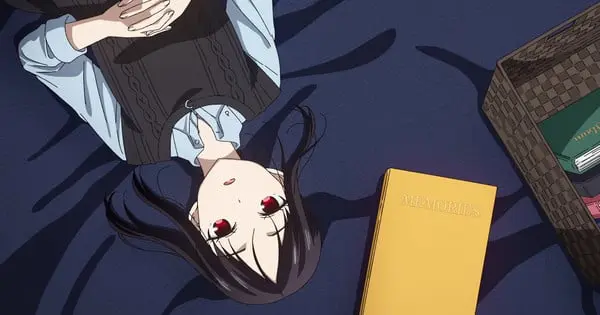“Rock is a Lady’s Modesty” continues to strike a chord with its blend of music, societal expectations, and self-discovery. Episode 12 amplifies the central conflict and introduces new challenges for Lilisa and her bandmates. Here’s a detailed look at the episode’s key moments and what they mean for the series.
Lilisa’s Choice: Rock vs. Refinement
The core of “Rock is a Lady’s Modesty” lies in Lilisa’s struggle to reconcile her passion for rock music with the refined image she must maintain at the Oshin Girls’ Academy. Having become the daughter of a wealthy real estate tycoon after her mother’s remarriage, Lilisa feels immense pressure to embody the ideal of a “Noble Maiden,” suppressing her true self in the process.
Episode 11 brought this conflict to a head when Lilisa met Yayoi Takayanagi, a former Noble Maiden who abandoned her music for societal approval. This encounter deeply affected Lilisa, making her realize how much she had suppressed herself. Episode 12 sees her grappling with the aftermath of this emotional breakthrough, determined to find a way to honor her passion while navigating the expectations placed upon her.
The Battle of the Bands Heats Up
Episode 12 wastes no time in setting the stage for a high-stakes battle of the bands. The girls need to find a rival band to perform against to continue playing at the venue, and a chance encounter introduces them to “Bacchus,” a popular boy band from a prestigious university. From the get-go, Bacchus embodies an arrogant and dismissive attitude, particularly towards Lilisa and her bandmates.
Introducing the Antagonists: Bacchus
Bacchus is depicted as a cartoonishly vain group of buffoons, dripping with privilege and a sense of entitlement. They are rich, attend a prestigious university, hire professional songwriters, and boast a massive online following. They view music as a mere “diversion”, highlighting a stark contrast with Lilisa and her band’s genuine passion and emotional investment.
Their manager is portrayed as an outsider who is dazzled by Bacchus’s glitz and glamour, hinting at a deeper commentary on the superficiality of the music industry.
Toxic Masculinity Takes Center Stage
The introduction of Bacchus brings themes of gender and class into sharp focus. The members of Bacchus take up as much space as they want and shove anybody who gets in their way. Their general attitude towards Lilisa and company, as well as towards their cadre of female fans, reeks of misogyny. This is toxic masculinity to a T.
By contrast, while Lilisa, Otoha, and Tamaki are hardly demure little flowers, the outlets for their aggression aren’t oppressive or stifling; they’re liberating. They sublimate their frustrations into their music and their performances together. When they talk trash like sailors on shore leave, they do so in a way meant to inspire improvement in themselves and others (results may vary).
Alice Steps Up
Alice, Lilisa’s stepsister, has been a source of comic relief throughout the series, often engaging in comical subterfuge. However, in Episode 12, she emerges as a true ally and defender of her stepsister.
When the members of Bacchus try to intimidate Alice, Lilisa steps in to defend her, even brandishing a steel chair in anger. This moment highlights the growing bond between the two sisters and Alice’s increasing integration into the band’s inner circle. Lilisa rewards her with a heartfelt hug afterwards, so I’m sure Alice feels adequately compensated for sticking her neck out, but her affection and admiration for her big sister are genuine. Music brought them together and dissolved any previous animosity between them. Hopefully, the girls can pull off a similar trick with the legion of rabid Bacchus fans raring to rend them apart.
Otoha’s Enigmatic Nature
Otoha remains the most mysterious member of the band. While Lilisa, Tamaki, and Tina’s motivations and emotions are relatively clear, Otoha’s actions often seem driven by pure whim. She only wants to get hot and sweaty with women who interest her, and she couldn’t care less about honor, morality, or victory. While we know most of the mental machinations that make Lilisa, Tamaki, and Tina tick, their drummer is like a capricious Muse gracing mortals with her presence because she feels like it. Otoha is human too, and I expect Rock Lady will explore her psyche at some point, but I don’t think we’ll get there before the season wraps up.
Themes and Analysis
Societal Expectations vs. Personal Passion
The anime explores how restrictive gender roles can create a psychological pressure cooker. Lilisa is working her butt off to perfect her act, with the implied reason being her mother’s remarriage to a powerful and wealthy man – and her mother’s manner of speaking to Lilisa as she’s leaving the house, juxtaposed with a flashback to their life before her marriage, indicate that she’s also putting on a performance.
The Power of Music
Music serves as a powerful outlet for self-expression and a means of forging connections. The characters sublimate their frustrations into their music and their performances together. When they talk trash like sailors on shore leave, they do so in a way meant to inspire improvement in themselves and others (results may vary).
Sisterhood and Solidarity
The bond between Lilisa and Alice continues to deepen, with Alice becoming an integral part of the band’s support system.
Final Thoughts
Episode 12 of “Rock is a Lady’s Modesty” is a compelling setup for the season finale. The introduction of Bacchus as antagonists raises the stakes and provides an opportunity to explore themes of gender, class, and the true meaning of music. With the battle of the bands looming, Lilisa and her bandmates face their greatest challenge yet, both on and off the stage. It’s a setup episode for the finale next week, but seeing Lilisa get extra fired up (to the point of swinging a steel chair at one of the dickheads from the boy band who was harassing her sister) and Alice reacting to this side of Lilisa was cool.










